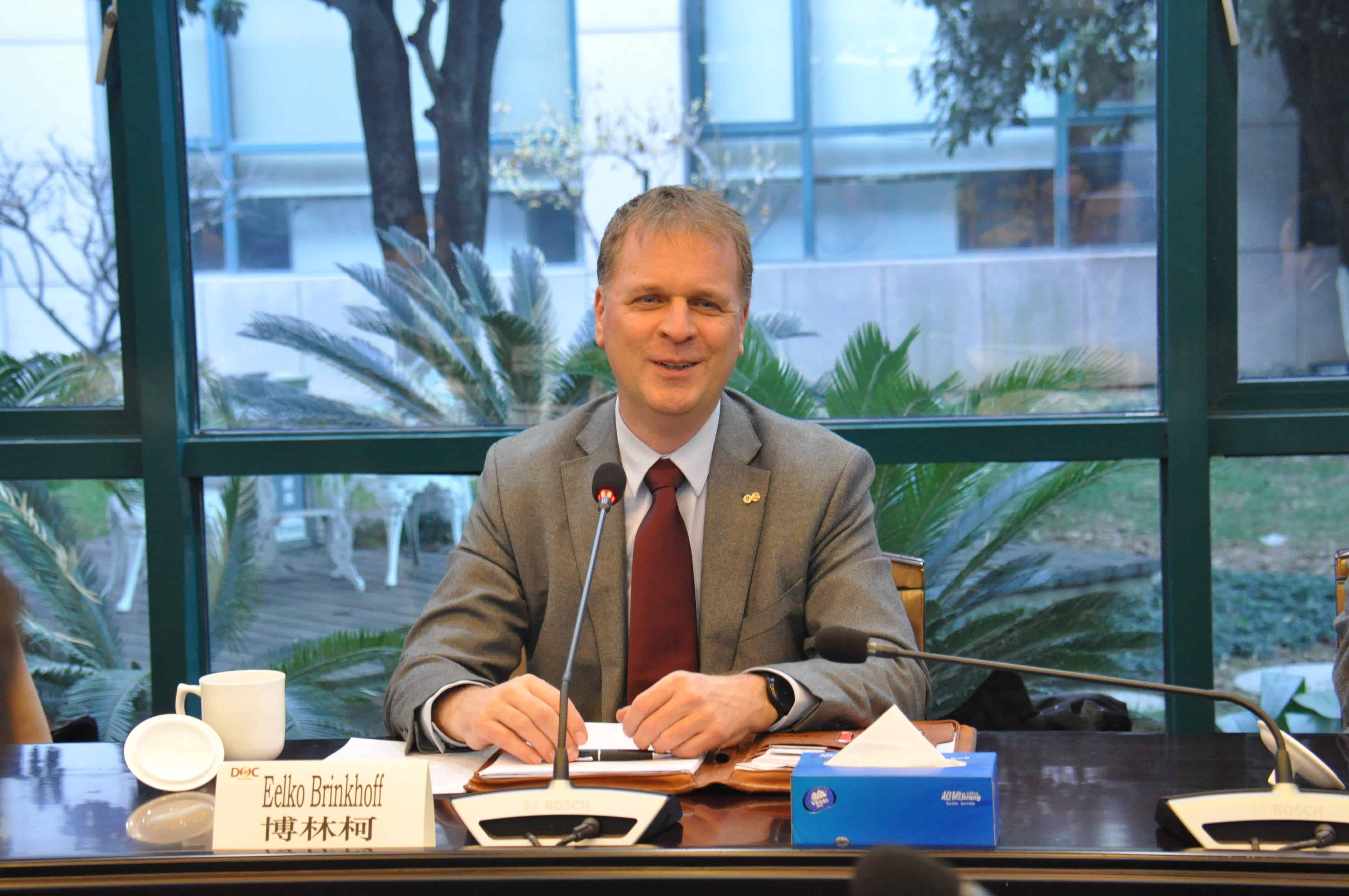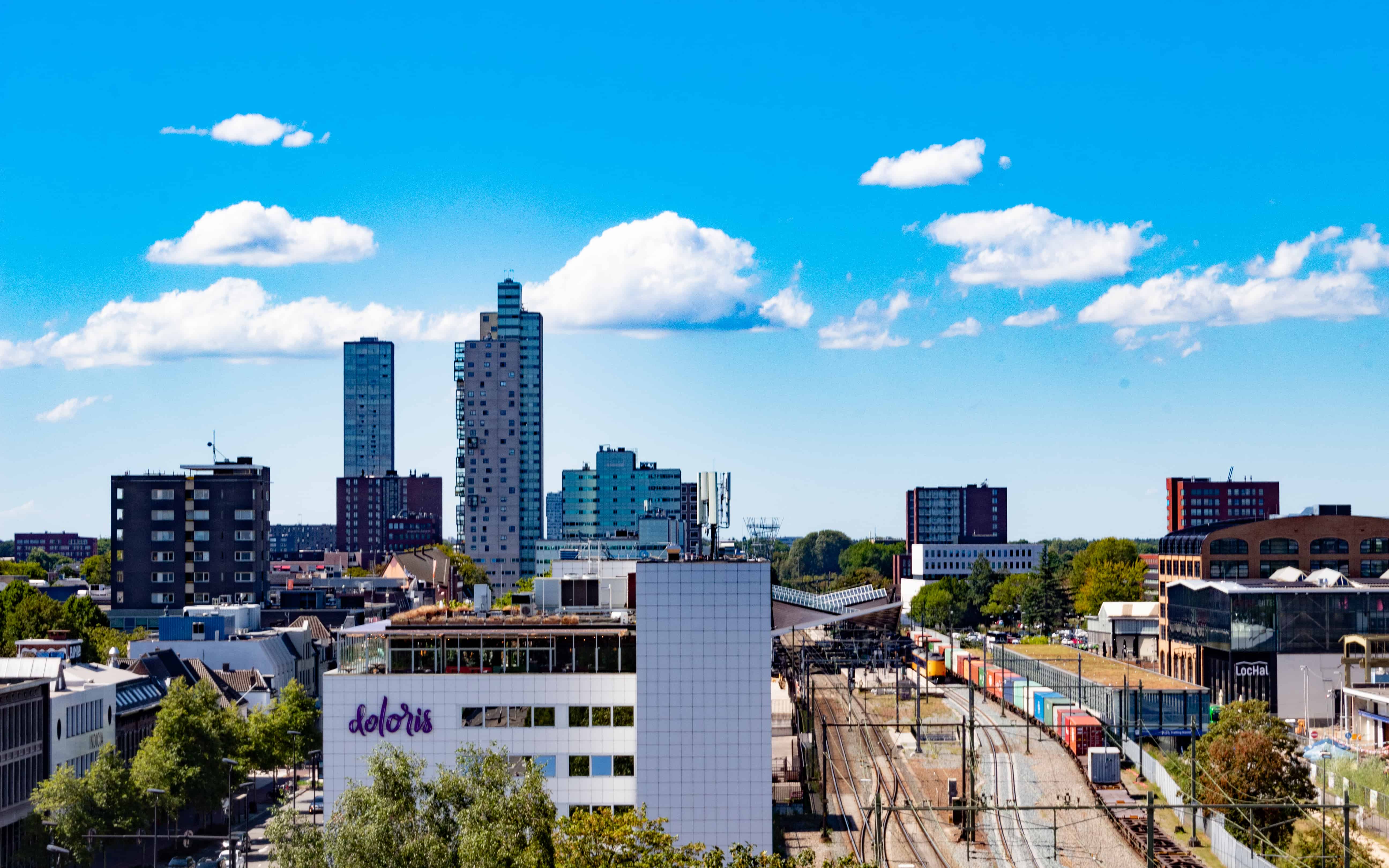
March 15 is not only the election day for the Provincial Council and Senate but also for the water boards. What is the importance of water authorities in relation to climate change? A conversation with the three water bosses of Brabant: dike reeve Kees Jan de Vet, water reeve Erik de Ridder and dike reeve Mario Jacobs.

If one party knows the importance of water and soil in our lives, it is the water board. Nobody needs to explain the urgency behind the principle of ‘water and soil guiding’ in spatial planning. At the same time, this is the stakeholder with perhaps the least formal authority in the whole interplay of forces. “But that doesn’t have to be bad if you act from your authority rather than power,” argues dike reeve Kees Jan de Vet of Brabantse Delta.
Regional area knowledge
“We have more regional area knowledge than anyone else, and we are the water authority; that means no one can ignore us on the topic of ‘water and soil guiding.” De Vet does not call that premise a dogma, but rather a “beckoning perspective” that the other parties involved can draw on.
Province and municipalities are there to cut the knots and enforce the decisions that have been taken, indicates water reeve Erik de Ridder (De Dommel Water Board) as well. “But if you were to portray the water boards only as a functional executive layer of government, you would be selling us short. And because we are at the table from the very first moment in the preparation of spatial projects, our insights are very influential at an early stage.”
Dike reeve Mario Jacobs (Aa and Maas Water Board) also notices this in daily practice. “Everything starts with that insight. Of course, in the end, it also comes down to the courage to make hard decisions because not everything can be done everywhere. Precisely because we are the party of choice to share those insights with the world on a well-founded basis, you should not underestimate our position. Even if we ultimately have no formal authority to make decisions.”
‘Water and soil are guiding‘
This interview is part of Brabantadvies’ interactive exploration of ‘water and soil steering’. In a series of interviews, the Brabant playing field and science reflect on the principle of ‘water and soil guiding’. What does this principle mean in practice? How do you weigh it in the context of scarce space? But also: how can we use the soil and water system as an opportunity? And what role do provinces, municipalities, and water boards have in this? The other interviews will follow in the coming months.
Borrowed power
That their influence is felt everywhere does not alter the fact that the water board members want to strengthen their position. “We now function mainly on borrowed power,” says De Ridder. “It would be good if the legislature gave us the tools also to be able to enforce ourselves. The water test is, at the bottom, something optional, something that can be put aside if the expected economic development is considered so important that our arguments are overruled.” Jacobs hopes that the minister will put his money where his mouth is and come up with instruments to further develop the principle of water and soil guiding. De Vet also looks to the commissioner: “We are not hierarchically under the provincial government. They need to understand our role at the provincial level a little better.”

The three water board administrators no longer need to convince their constituents that tough decisions are needed. Climate change is increasingly in the minds of governments, entrepreneurs, and individual citizens, they note. Jacobs: “Those peak showers help us tell our story. We sometimes say, ‘Give us today our daily bread and occasionally a flood.’ Exaggerated, of course, but precisely these droughts and floods make the seriousness of the situation visible to everyone.” Incidentally, he sees considerable differences in this from region to region. “Municipalities along the Meuse, the Dommel, and the Aa already understand it very well, but the further upstream, the less intense the problems and the more difficult it is to convince all parties of the importance of letting water and soil be a guiding principle. And yet you need everyone, even upstream, for now, and later. We may be good at mopping up, but the tap must be turned off.”
“Give us today our daily bread and occasionally a flood.’ Exaggerated, of course, but it is precisely these droughts and floods that make the seriousness of the situation visible to everyone.”
Dike reeve Mario Jacobs
But that’s not all, De Vet immediately adds. Especially in the Brabant Delta, salinization has become a serious problem. “We are suffering from an accumulation of problems, of which persistent drought, sea level rise and river water decline are the most prominent. Freshwater availability in West Brabant is already a huge challenge, but it will only get worse in the coming years. In fact, Brabantse Wal is the driest and most nitrogen-sensitive area in the Netherlands. All our decisions are in fact climate decisions because of that situation.”

Limits to social engineering
Weather extremes – whether they result in drought or flooding – show the limits of the social engineering of our spatial development, say the three water board administrators. Technical solutions obviously remain important, but when water and soil are guiding, the time when all salvation must come from technology is over. “Then it comes down to all the knowledge we have in-house,” says De Ridder. “We are the authority on water and soil, so it is up to us to bring that story to people’s attention convincingly. The Climate Underlay created last year is a useful tool for that.”
And so the water boards continue to feed administrators in provinces and municipalities with their insights in order – hopefully – to impress upon them the need to listen more to nature. Unfortunately, this is not always obvious, De Vet soberly observes. “Setting up the Drought Commission was a good initiative by the province. The recommendations are crucial, there is no more time to lose. Here lies a big task for provincial administrators and boards of water boards. The severity of dehydration is so great that a major rebuilding is needed, literally and figuratively. Do we realize that Brabant is the only province that removes all the drinking water under natural areas? So we need to think like the weather about alternative abstractions.”

Cooperation with nature organizations and water companies
In this regard, the water boards cherish their good relations with nature organizations and water companies. In West Brabant, for example, they cooperate on measures to continue to guarantee freshwater availability. But more is needed than that. “It doesn’t stop with the efforts of governments, entrepreneurs, and investors,” warns Jacobs. “Every citizen can do something. Get the tiles out of your yard, and cut the downspout if it discharges to the sewer.”
And see the water boards as an ally rather than an obstacle, De Ridder adds. “We really do understand that it can be painful for an entrepreneur if, at some point, the province prohibits building in an area that we have said is undesirable because of water storage. But then also realize that such a decision is really the best for everyone in the long run. And aside from that, we are always willing to help think of alternatives that do make sense.”








